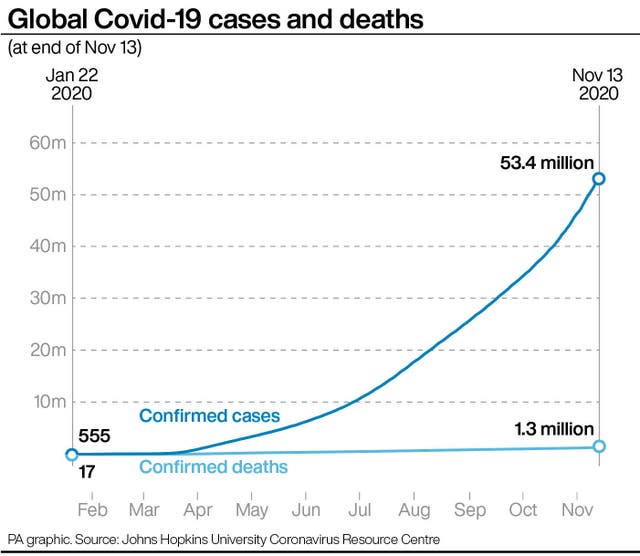
Nick Ferrari 7am - 10am
14 November 2020, 10:54

Debate has been lively about the next steps amongst the Covid advisory board the President-elect announced this week.
Joe Biden faces a decision unlike any other incoming president: whether to back a short-term national lockdown to finally arrest a raging pandemic.
For now, it is a question the president-elect would prefer to avoid. In the week since he defeated Donald Trump, Mr Biden has devoted most of his public remarks to encouraging Americans to wear a mask and view the coronavirus as a threat that has no regard for political ideology.
But the debate has been livelier among members of the coronavirus advisory board Mr Biden announced this week.

One member, Dr Michael Osterholm, suggested a four to six-week lockdown with financial aid for Americans whose livelihoods would be affected. He later walked back his remarks and was rebutted by two other members of the panel who said a widespread lockdown should not be under consideration.
That is a sign of the tough dynamic Mr Biden will face when he is inaugurated in January. He campaigned as a more responsible steward of America’s public health than Donald Trump, and has been blunt about the challenges that lie ahead for the country, warning of a “dark winter” as cases spike.
But talk of lockdowns are especially sensitive. For one thing, they are nearly impossible for a president to enact on his own, requiring bipartisan support from state and local officials. But more broadly, they are a political flashpoint that could undermine Mr Biden’s efforts to unify a deeply divided country.
“It would create a backlash,” said Dr Amesh Adalja, a senior scholar at the Johns Hopkins Centre for Health Security, who added that such a move could make the situation worse if people did not comply with restrictions. “Lockdowns can have consequences that diminish the value of such an approach.”

During his first public appearance since losing the election, Mr Trump noted on Friday that he would not support a lockdown. The president, who has yet to publicly acknowledge Mr Biden’s victory, is likely to reinforce that message to his loyal supporters once he has left office.
Still the pandemic’s toll continues to escalate.
Coronavirus is blamed for 10.6 million confirmed infections and almost a quarter of a million deaths in the US, with the closely watched University of Washington model projecting nearly 439,000 dead by March 1. Deaths have climbed to about 1,000 a day on average.
New cases are soaring, shattering daily records repeatedly, and reaching an all-time high on Thursday of more than 153,000.

Several states are beginning to bring back some of the restrictions first imposed during the spring, but leaders in much of the country are proceeding with caution, aware that Americans are already fatigued by virus-related disruptions.
After Dr Osterholm made his comments, a number of Mr Biden’s taskforce members went out to publicly disavow lockdown possibilities. Dr Vivek Murthy, the former US surgeon general who is serving as one of the co-chairs on Mr Biden’s coronavirus advisory board, said the group was looking at a “series of restrictions that we dial up or down” based on the severity of the virus in a given region.
“We’re not in a place where we’re saying shut the whole country down. We’ve got to be more targeted,” Dr Murthy said on ABC’s Good Morning America.
“If we don’t do that, what you’re going to find is that people will become even more fatigued. Schools won’t be open to children and the economy will be hit harder, so we’ve got to follow science, but we’ve also got to be more precise.”